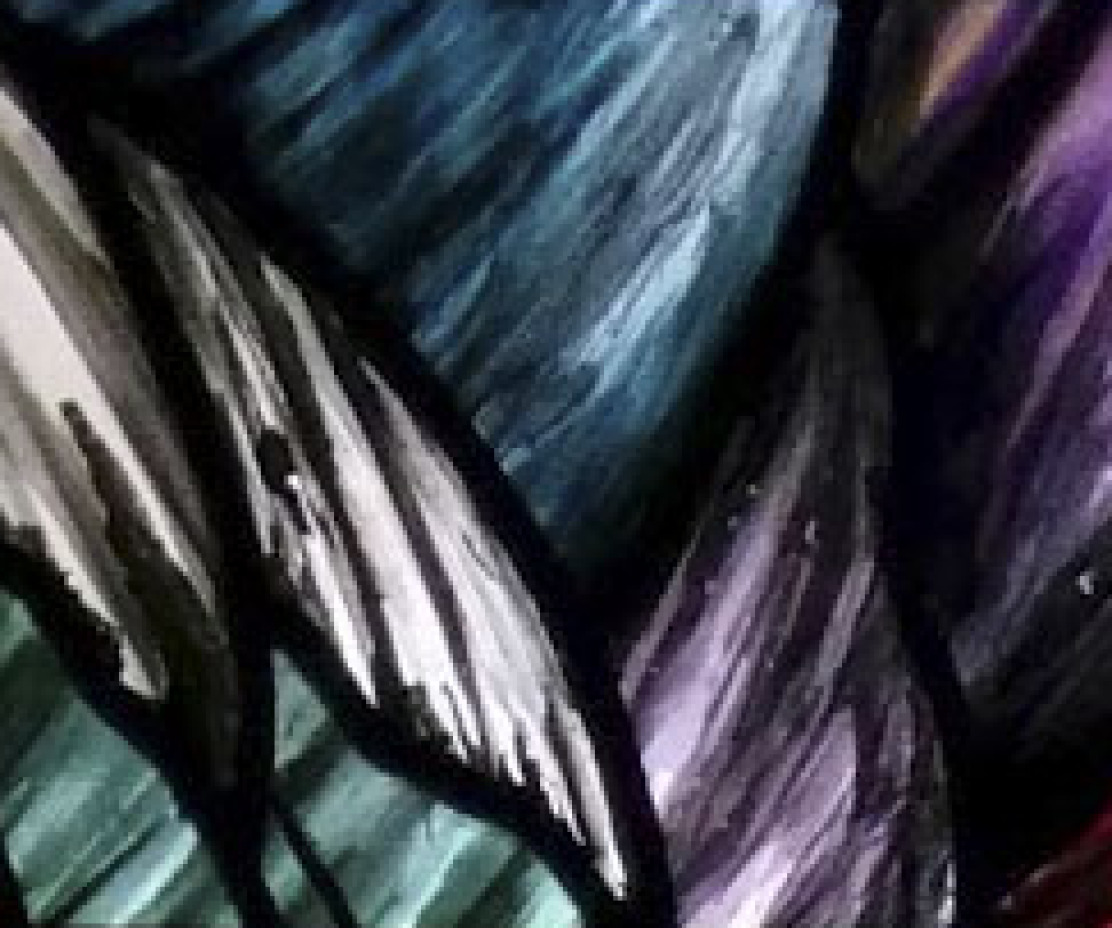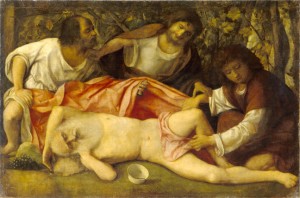The sons of Noah who went out of the ark were Shem, Ham, and Japheth. Ham was the father of Canaan. These three were the sons of Noah; and from these the whole earth was peopled.
Noah, a man of the soil, was the first to plant a vineyard. He drank some of the wine and became drunk, and he lay uncovered in his tent. And Ham, the father of Canaan, saw the nakedness of his father, and told his two brothers outside. Then Shem and Japheth took a garment, laid it on both their shoulders, and walked backwards and covered the nakedness of their father; their faces were turned away, and they did not see their father’s nakedness. When Noah awoke from his wine and knew what his youngest son had done to him, he said,
‘Cursed be Canaan;
lowest of slaves shall he be to his brothers.’
He also said,
‘Blessed by the Lord my God be Shem;
and let Canaan be his slave.
May God make space for Japheth,
and let him live in the tents of Shem;
and let Canaan be his slave.’After the flood Noah lived for three hundred and fifty years. All the days of Noah were nine hundred and fifty years; and he died.
A drunk man falls down and passes out naked in the street, or in his tent. And for his drunkenness he blames his youngest son for embarrassing him in front of his other two children. And then he curses not his son Ham who found him, but his son’s son, Canaan and all his descendants. And from that incident we have the biblical justification for slavery, or at least the first one.
This passage, therefore, has been used by the Dutch Reformed Church in South Africa and by American slave owners in the South to justify the Apartheid system and the slave trade respectively throughout the years.
But before even that, this passage allowed for the justification of the Israelites to invade, conquer and take the land of Canaan for themselves from the Canaanites, who they proceeded to enslave. And one wonders how much it still influences the current Israeli/Palestinian conflict.
Untangling this passage is difficult. It seems to come from the J source and was redacted later to occur after the flood, instead of appearing before the flood as seems more natural. As well, this passage looks to have been adapted slightly to have Noah the vine grower practice husbandry as the hero from the Gilgamesh epic. In this manner the epic has been converted into Yahwism and eventual finds its place in the Old Testament canon.
This passage therefor comes not only from the J source, but also from Babylonian myths. Something not often spoken about in Christian churches I would imagine. But we have tackled the question of myth already. Let’s turn to other questions that this passage raises.
So what are we to do with a passage that has Noah curse an entire future population to be the slaves of others? Is slavery okay then? It is biblical after all. Is this another caution against sexual perversion? Or is it the ranting’s of a drunkard with a hang over? Where is the kernel of truth in here that God wants us to see?
If you asked me, and I assume you have since you are reading my blog, I think the caution in this passage is to maybe ignore the preacher sometimes. Seriously, I just said that.
Here we have a man speaking on behalf of God, cursing and blessing. Noah, who God said was righteous, was asked to build an ark and save a holy remnant. He was never tasked with the prophetic role for after the flood receded. He was asked to be fruitful and multiply, but not to curse and not to bless.
So do we discount this passage? Well maybe we discount the blessing and curses because they come from a man and not from God. And maybe we learn to be more discerning and have received a warning from God about people who bless and curse in his name. Maybe we see in Noah’s actions, the actions that will lead to evil and we are to learn from them, so as not to repeat them and not follow the path of evil.
The bible, I believe holds up for us examples of what to do, but also what not to do. And this I think is an example of what not to do, which is not take the Lord’s name and act in the place of God. The only one who can bless or curse is after all the one who created us.

